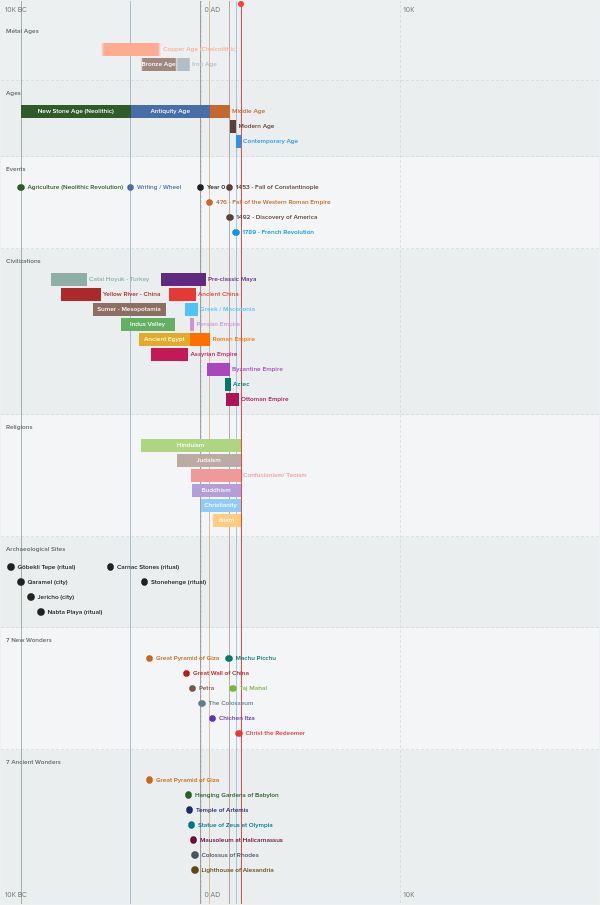The Bahá’í teachings encapsulate profound insights into the nature and evolution of civilizations, particularly in the context of a recurring cycle. Central to this discourse is the understanding that humanity is engaged in an ongoing journey through distinct epochs marked by both advancement and retraction. This exploration elucidates the characteristics of each cycle, the underlying dynamics which propel them, and the potential for future civilization as envisioned by Bahá’í principles.
To initially grasp the recurring cycle of civilizations, it is vital to comprehend what is meant by civilization within the Bahá’í framework. Civilizations are not merely defined by the physical and technological advancements of their time but also by the spiritual and moral ethos that guide society. The Bahá’í worldview posits that these civilizations emerge, flourish, and ultimately decline, driven by human actions and the collective consciousness of their populace.
The historical progression of civilizations can be delineated into phases, each characterized by specific attributes. During the genesis of a civilization, the collective spirit of a community often catalyzes peak development. This phase, imbued with transformative potential, is marked by innovation, creativity, and a robust social fabric. The early stages of the Roman Empire and the flourishing heights of the Islamic Golden Age exemplify this dynamic. The contributions of thought leaders, philosophers, and artisans during these transitions cannot be overstated; they lay the groundwork upon which the pillars of future civilizations are constructed.
Inherent to the cyclical nature of civilization is the emergence of challenges. Following periods of prosperity, societies often grapple with issues such as moral decay, social injustice, and political strife. These challenges serve as crucibles, testing the resilience of a civilization’s core values. As illustrated in Bahá’í philosophy, when the spiritual foundation of a society is neglected, its outward manifestations often lead to decadence. This phenomenon is concisely captured in the adage that a civilization neglecting its ethical obligations is destined for decline.
The Bahá’í teachings advocate for the acknowledgment of interconnectedness among all peoples and nations, positing that a civilization cannot thrive in isolation. The cycles of rise and fall reflect an intrinsic unity of humanity—when one nation suffers, the ripple effects transcend borders, often leading to widespread discontent. This interconnectedness reminds us that the evolution of civilization is a shared journey. Bahá’í writings emphasize the importance of global cooperation in addressing present-day challenges that threaten the very foundation of modern civilization.
As civilizations experience decline, a recurring theme emerges—crisis engenders opportunity. The dissolution of old paradigms frequently paves the way for new ideas to flourish. The emergence of the Renaissance post-Middle Ages, for instance, showcases how societal upheaval can re-engage the human spirit towards enlightenment and progressive thought. The teachings of Bahá’u’lláh encapsulate this potential, asserting that emerging from the ashes of disillusionment, humanity can establish a new order characterized by unity, equity, and justice.
To transcend the cycle of decline, the Bahá’í perspective advocates for the integration of universal principles into societal frameworks. The tenets of justice, equality, and an unwavering commitment to peaceful coexistence can serve as bedrocks upon which resilient civilizations are rebuilt. These principles elevate the moral consciousness of society, engendering a sense of responsibility that counters the entropy of moral decay.
Furthermore, the role of education is pivotal. The Bahá’í teachings underscore that education transcends mere academic knowledge; it is fundamentally about character development and the cultivation of virtues. Educated individuals foster enlightened societies capable of critical thinking and proactive engagement with global challenges. A commitment to universal education emerges as a powerful antidote to the pitfalls associated with civilization’s cyclical nature.
The realization that civilizations are transient again invites contemplation about the future trajectory of humanity. Bahá’í writings underscore the significance of cultivating a global perspective. As we stand at a historical crossroads, the possibility of fostering a new global civilization rests upon our collective shoulders. This future civilization, envisioned by Bahá’í thought, is defined by unity, where diversity is embraced and every person’s contribution is valued. It is predicated on the idea that the unfolding of civilization is not solely linear; it holds the potential for unprecedented advancements alongside a deepening of spiritual and moral values.
In summation, the recurring cycle of civilizations as articulated in Bahá’í teachings presents a compelling narrative about humanity’s past, present, and future. It emphasizes the importance of learning from historical patterns, embracing the transformative power of education, and reinforcing our collective commitment to ethical principles. As the world navigates its present challenges, let us strive to foster a global community grounded in the ideals of unity, justice, and compassion. Only then can we break free from the cycles that divide us and pave the way for a more harmonious and enlightened future.
